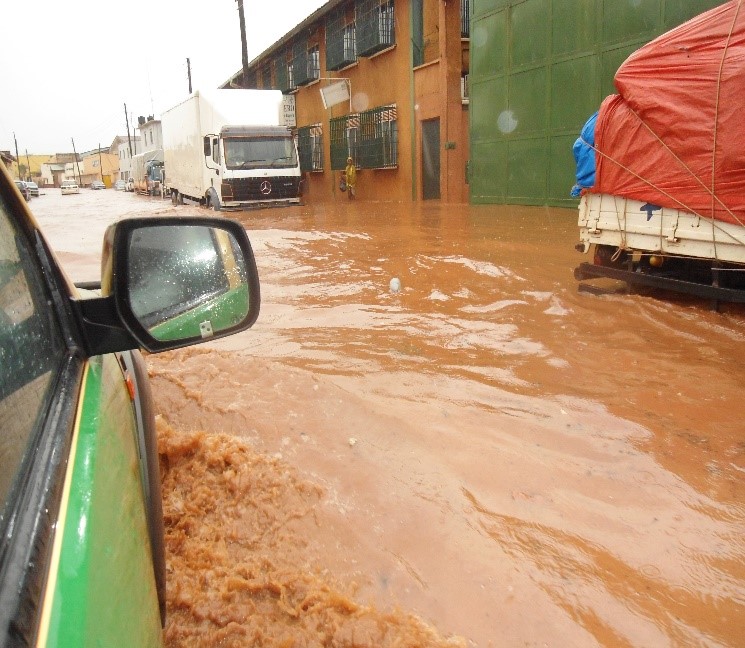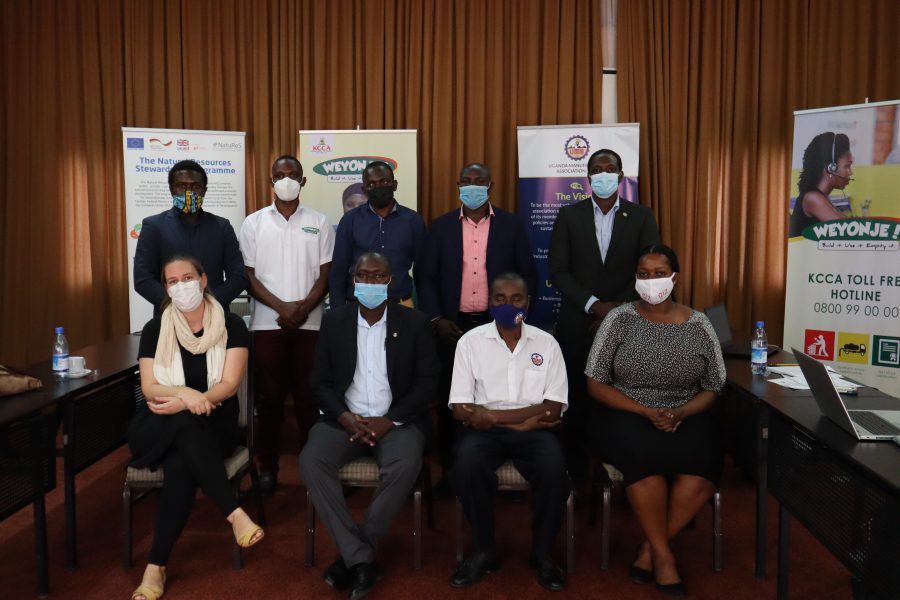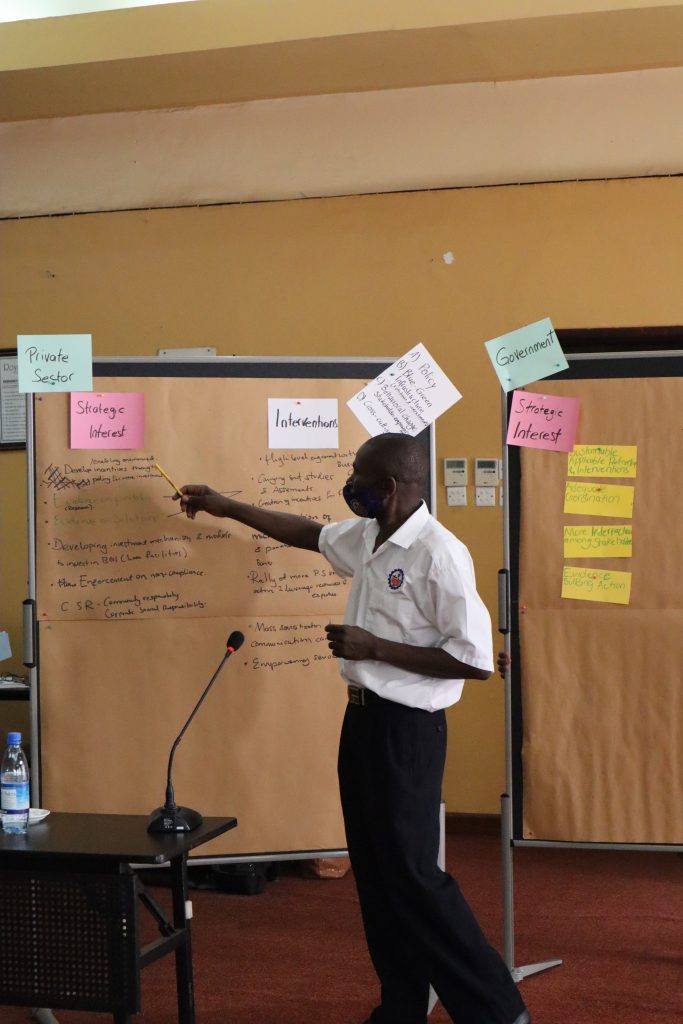First Partnership Meeting of the Greater Kampala Integrated Flood Resilience Partnership
The Greater Kampala Metropolitan Area, Uganda’s economic powerhouse, is faced with destructive flash floods that pose severe socio-economic challenges to both businesses and residents of Greater Kampala.

To mitigate and adapt to the current flooding challenges, government, private actors, and communities are coming together, to work collaboratively in the Greater Kampala Flood Resilience Partnership, under the Natural Resources Stewardship Programme in Uganda. This multi-stakeholder partnership brings together the Ugandan Ministry of Water and Environment, Kampala Capital City Authority (KCCA), Uganda Manufacturers Association (UMA), private sector actors, civil society organisations and other government institutions with the goal to jointly develop and promote blue-green, innovative infrastructure and inclusive solutions for improved urban resilience towards flooding in Greater Kampala. More information on what the partnership aims to achieve.
First partnership meeting in Kampala and virtually
On the 1st of September 2021, the partners kicked-off the partnership in a first meeting, which was held partially online and in person at Royal Suites Hotel, Bugolobi, Kampala. The objective of the meeting was to initiate discussions on the partner interests, partnership opportunities and agreement on the next steps in formalizing the partnership.

Copyright: GIZ/Elena Barth
During the meeting, the private sector through Uganda Manufacturers Association and Britannia Allied Industries Limited gave some insight into the flash flood challenge affecting businesses, specifically manufacturing industries. For example, a study conducted in 2019 by UMA under the Water Security Action & Investment Plan Project on water security revealed that out of 469 companies surveyed in Greater Kampala, 47 mentioned that they experienced damaging floods more than twice in every rainy season. Concrete impacts on businesses include: overflowing water ending up in production areas, resulting in damages to production materials, collapse of building infrastructure and halt of production.
Addressing the flooding challenge through a catchment-based approach was presented by the Ministry of Water and Environment, where emphasis was made on consideration of hydrological boundaries (catchment) rather than city administrative boundaries. Innovative models and solutions for flood management were presented by a civil society partner, namely RAIN foundation. Those include blue-green infrastructure solutions such as rain gardens, permeable pavements and bioswales, and case studies of similar implementation in other parts of Uganda, Kenya, and Rwanda.
New ideas and solutions for flood mitigation in Kampala
In a brainstorming session, the partners were split up according to sectors (public, private, and civil society) and discussed their strategic interest in the partnership and possible interventions for the following four thematic areas: (A) Policy (B) Blue-green infrastructure solutions and investment (C) Behavioural change & stakeholder empowerment (D) cross cutting thematic areas, or any other thematic area.

The responses across sectors were very similar in the thematic areas which indicated a good start for synergy and collaboration amongst actors.
Moving ahead, partners agreed on next steps in their partnership, such as: Formalizing the partnership and partners’ commitment by submitting a letter of intent; Supporting the preliminary scoping study; Submitting their preferred activities under the partnership for the Partnership Action Plan; To meet monthly during the inception period before the official launch slated for January 2022.
Other partners in attendance included representatives from the National Environment Management Authority (NEMA), Ministry of Lands, Housing and Urban Development, ACTogether and Vivo Energy Uganda.
Stay up to date and follow us on Twitter!